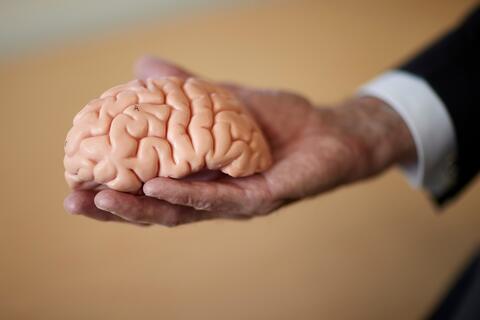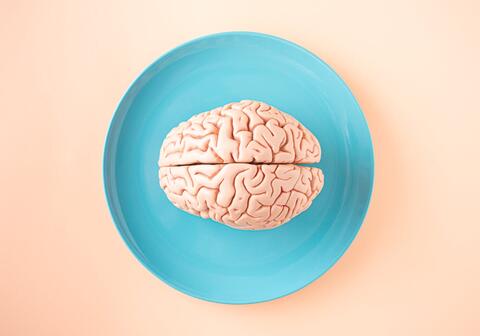
Department of Brain Health News
The department of brain health is dedicated to advancing research, education, and clinical care to benefit brain health and the care and treatment of people with brain disorders across the lifespan. The faculty specializes in several areas that range from basic to clinical research in neurodegenerative disease and stroke.
Current Brain Health News

The top news stories starring university students and staff.

Data provided by UNLV researchers helped secure FDA approval for a new blood test to detect Alzheimer’s disease.

The top headlines featuring UNLV’s staff and students.

Report led by noted Alzheimer's researcher Dr. Jeffrey Cummings assesses status, trends associated with 182 active clinical trials worldwide.

UNLV research team says high blood sugar levels appear to weaken function in key part of brain, mimicking Alzheimer’s.

The 'Brain Health Frontiers: Tackling Alzheimer's Together' panel discussion highlighted the revolutionary research the Department of Brain Health is conducting to fight Alzheimer’s disease.
Brain Health In The News

More than 250 representatives are coming together to not only network but also share their dedication to find the cure for Alzheimer's. This includes announcing a new partnership with UNLV.

More than 250 representatives are coming together to not only network but also share their dedication to find the cure for Alzheimer's. This includes announcing a new partnership with UNLV.

A blood test for Alzheimer’s Disease a game-changer for patients and their families.

A blood test for Alzheimer’s Disease a game-changer for patients and their families.
As current drugs fall short, companies are exploring new targets to treat the neurodegenerative disease
For decades, diagnosing Alzheimer’s disease (AD) has required access to specialist memory clinics, neuroimaging or invasive cerebrospinal fluid (CSF) testing. That paradigm is starting to shift. In 2025, the US Food and Drug Administration (FDA) cleared the first blood-based biomarker tests intended to aid the assessment of AD.
Brain Health Experts


